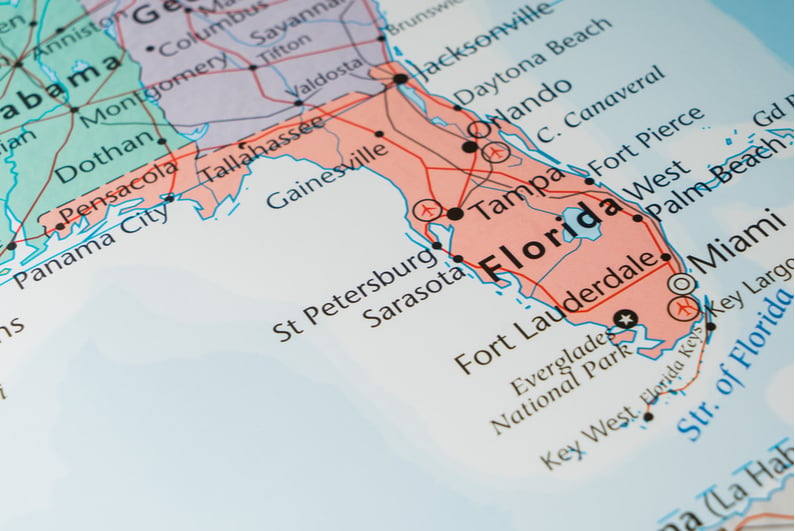A joint effort
Two legislators in the state of Florida have taken their first steps toward legalizing sports betting in the state after filing three new bills.
Rep. Chip LaMarca (R – Lighthouse Point) and Rep. Anika Omphroy (D – Lauderdale Lakes) proposed the legislation last Thursday. It consists of three bills, which together create the framework for a legal retail and online sports betting market in Florida.
Safe and regulated domestic sports wagering is an industry Florida deserves.”
In a statement released last week, Rep. LaMarca explained the advantages of such legislation. He said a legal sports wagering market would “translate into millions in revenue,” allowing Florida to recover from the impact of the pandemic. LaMarca also argued it would permit the state to benefit from the many sporting events hosted within its borders, saying: “Safe and regulated domestic sports wagering is an industry Florida deserves.”
Taking a closer look
Under the Florida Constitution, individual bills can only cover a single subject. As a result, LaMarca and Omphroy’s sports wagering legislation includes three different bills. HB 1317 implements the overall policy, HB 1321 sets out licensing details, and HB 1319 forms the tax structure surrounding the betting market.
The legislation permits sports betting at tribal properties, casinos, and pari-mutuel facilities, in addition to professional sports venues. It permits those properties to provide retail betting and set up a website and app for customers to wager online. Operator licenses would cost $7.5m initially and an additional $1m each year for renewal.
Florida’s legislature will consider the bills in the upcoming legislative session which runs from March 2 to March 30.
A fresh push in Florida
The legalization of sports betting failed to gain approval during Florida’s legislative session. This hasn’t deterred the state’s sports betting backers, however, who are making a fresh push for a legal market in the new year.
Brandes also said he intends a legal market to raise vital state funds
This year, Florida’s legislative body is also set to consider another sports wagering proposal introduced by Senator Jeff Brandes (R – St. Petersburg). He filed SB 392 and accompanying bills in December with the purpose of legalizing sports betting in the state. Similar to the reasoning of LaMarca, Brandes also said he intends for a legal market to raise vital state funds, primarily for education.
Brandes’s bill places regulation of the industry in the hands of the Florida Department of the Lottery. The body would have the power to approve licenses for operators and to regulate sports pools. The bill sets a licensing fee of $100,000 and a tax rate of 15%.




